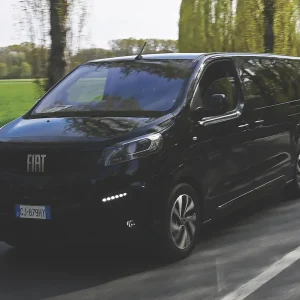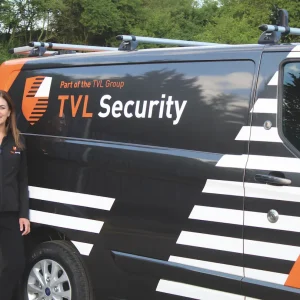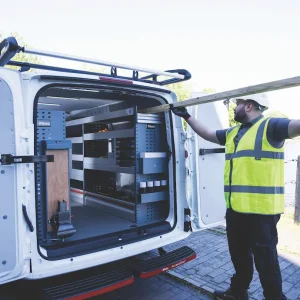Vans are beginning to catch up with cars on the road to electrification. The initial lag was based around restricted model choice, supply issues and infrastructure deficits (BVRLA Road to Zero Report Card, 2022). However, interest is soaring, with reports on order book growth abounding in the sector, backed up by solid reports of van affordability. According to Transport and Environment Total Cost of Ownership Modelling, 2022, electric vans are already cheaper to own in the UK than their diesel equivalents.
Earlier this year, we undertook the groundbreaking GB EV Rally covering 1,200 miles in five days from John O’Groats to Land’s End using both EV cars and vans to demonstrate the long distances that can be achieved, even when using only the public charging network. Let’s take a closer look at the factors involved in the switch and the opportunities emerging to put van drivers and business owners at ease.
Managing infrastructure anxiety
Before we can contemplate an EV van switchover, the issue of infrastructure anxiety should be dealt with. EV take up is directly impacted by the level of charging infrastructure that is available. Research (SMMT, 2022) shows that 57% of van owners or leasers are anxious about finding a charge point if they do go electric. The fear is real – more than a third of all new van models are now available with a plug, following billions of pounds of OEM investment, but only one in 20 buyers made the move to a battery-powered van in 2022. Diesel still made up 93% of all new van registrations for models sold in July (New AutoMotive).
Vans support around one in 10 workers across the UK, including trades such as construction and home delivery services – the latter experiencing rapid growth in the pandemic, which has led to increased future demand. With four million of them on our roads, electrifying them is one of the key actions we must take as a sector to reach net zero. The SMMT has been calling for the introduction of a national ‘van plan’ to deliver the infrastructure necessary to deliver a zero-emission commercial vehicle market to tackle the issue of infrastructure anxiety. Van charging provision must be incorporated into national infrastructure plans to put business minds at ease.
Some businesses are already plugging the gap. Fleete, part of Macquarie Asset Management’s Green Investment Group (GIG) has launched an electric infrastructure business for EV commercial vehicles. The business, based on subscription payments, handles charging infrastructure in its entirety, from installation to management and financing, working with clients to install charging points in large scale depots where vehicles can be parked and charged overnight. Rapid chargers will be built close to motorways to support truck and coach fleets.
Driver training already caters for EV drivers
Driver training is a trusted method of boosting confidence among new EV drivers. Equipping drivers with the knowledge and skills to drive EVs – a completely new technology for many and to make the right safety decisions on the road – is vital. Drivetech, part of the AA, launched EV Co-Driver in late 2021, a nudge-theory, game-changing initiative geared towards focusing on educating drivers on best practice behind the wheel. EV Co-Driver offers a completely flexible, engaging approach to driver training via a series of immersive animations.
Boosting used EV van sales
Building a sustainable used electric van market is also critical to wider business take up. The Vehicle Remarketing Association (VRA) says that creating a well-informed narrative around electric vans is central to this goal, emphasising total cost of ownership benefits, greater accessibility to areas within Clean Air Zones, speed of charging and payload benefits, rather than focusing on environmental benefits. Improved battery health information is also critical to building confidence in used models (BVRLA, 2022). Some industry leaders have called for the addition of EV battery health to join age and mileage as a key used vehicle valuation metric, but new legislation may be required to enable data sharing.
Food for thought
I hope I’ve clearly summarised the factors facing those considering switching, and provided food for thought on solutions. There is still a great deal of uncertainty on many fronts as we progress towards the ban on new diesel and petrol vehicle sales, including charging, driving differences and the legalities over what information can and can’t be shared when it comes to buying a used EV.
At the AA we’ve made it our mission to support drivers and businesses with the transition to EVs and alternative fuels. We want to empower drivers and give everyone the confidence to get behind the wheel of an EV. Wherever you are on your journey, you can take comfort that we are behind you, every mile of the way.
To find out more about AA Business Services, please visit: https://www.linkedin.com/showcase/the-aa-business-services/
For further media information, please contact Joel Del Gesso at Prova Public Relations
on 01926 776900 or email theaa@provapr.co.uk





